A truly memorable villain can anchor and define an entire series of films, shows, books, or a combination of media. However, while Hannibal Lecter is very clearly the star, which will be covered in no uncertain terms with this ranking of every Hannibal Lecter movie from worst to best, the appeal of these stories isn’t entirely on the cannibal doctor.
Even with the controversial 2001 Ridley Scott gore-fest Hannibal, all of these films (as well as TV shows and the source material books) have emphasized that without other strong characters to engage Lecter, he’s only but so interesting.
From Clarice Starling to Will Graham, and to the killers and monsters who are arguably of a different and crueler breed than Lecter, these movies are defined by a deep inventory of fascinating characters. I don’t think I would refer to him as an antihero, but it’s clear enough across these films, each of which are quite different from one another for tone and other qualities, that Lecter has his own moral code. Which can be a weird thing to say about a serial killer who eats people, but this is another example of a franchise that has gone far beyond anyone’s expectations.
Manhunter established the character. The Silence of the Lambs then seemingly overnight made him a movie icon. The desire to explore the character further was inevitable at that point.
Some of those explorations have been successful, in terms of establishing Lecter and others in this universe as deeper, more engaging characters. Some of it has proven to audiences and critics that you don’t need to tell every story for your heroes and/or villains. There is an argument to be made that a character like Lecter can lose his specialness from overexposure. There’s also the idea that over the years, Lecter has been diluted into a brand name above all else.
It’s a little odd to consider that, at one time, a full extended universe on day 1 wasn’t something studios, writers, directors, and others were generally thinking about. The Hannibal Lecter franchise is one that was built gradually, to a certain degree, entirely by accident.
At the end of the day, it comes down to just how far you think Lecter’s story, as well as the threads established by other characters, can run. The success of the cult TV hit Hannibal, which ran for three seasons, proved that under the right circumstances, these characters could be taken in an interesting direction.
Still, don’t completely discredit the notion that this character really is at his best when we only spend a minimum in his company.
As we explore the history of a film series with 5 entries over 35 years and counting, decide for yourself just how much time you really want to spend with Hannibal the Cannibal.
Hannibal Lecter Movies Ranked
5. Hannibal Rising (2007)
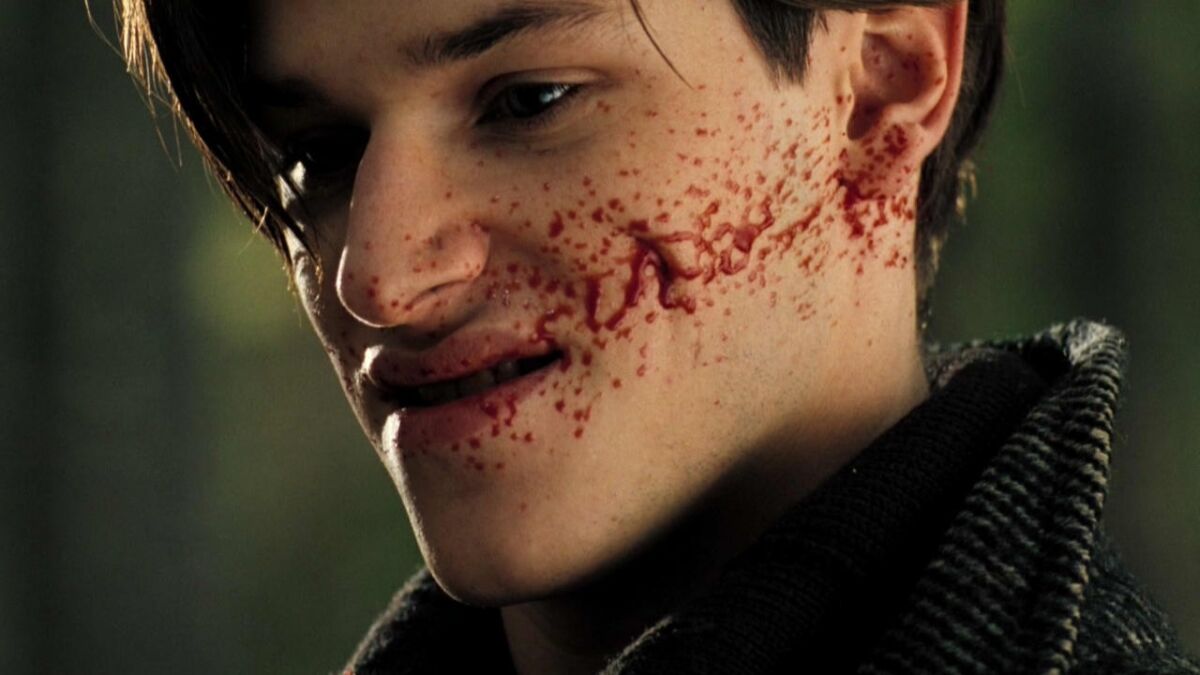
Director: Peter Webber
Hannibal Rising is a decidedly not-bad-but-not-great movie with the unfortunate responsibility of being a prequel virtually no one asked for. Not even author Thomas Harris, who also wrote the screenplay for this, wanted to get involved. The rumor that he was coerced into writing both the unpopular prequel novel and script for the inevitable film adaptation is at least plausible.
So, where does that leave us?
The biggest problem with Hannibal Rising is that it’s forced to build an entire story around something that we only really needed in small pieces. It’s the story of Hannibal Lecter’s formative years, set against the end of the Second World War, the tragedies of his youth, and the quest for vengeance that would come to define his soul.
Touched on in previous books, including Hannibal, this film fully realizes the story of what led to Lecter becoming a serial killer. Hannibal Rising finally introduces Hannibal’s sister Mischa, whose horrible death sets in motion a human being who would transform himself into something far more terrifying than the most sadistic bullies of his youth in Lithuania.
Unfortunately, while occasionally very interesting, Hannibal Rising just doesn’t have enough in the way of character depth, plotting, or anything else to justify a movie that runs over two hours. We really don’t learn anything profound about Lecter, even with a strong performance by Gaspard Ulliel as the not-quite-yet-a-doctor. This movie goes through the motions to an even more depressing degree than the previous film Red Dragon but doesn’t have that film’s cast and high energy to carry it through.
The film might function well as a shorter movie that simply tells of a young man being devoured (pun sort-of intended) by trauma and revenge. As it is, we have the most disappointing entry for not only these movies, but for the books those films are based on.
If you want to pretend this isn’t even a Hannibal Lecter story, focusing on notable supporting performances by Gong Li and Rhys Ifans, or some very compelling murder set pieces, there might be something salvageable here.
4. Red Dragon (2002)
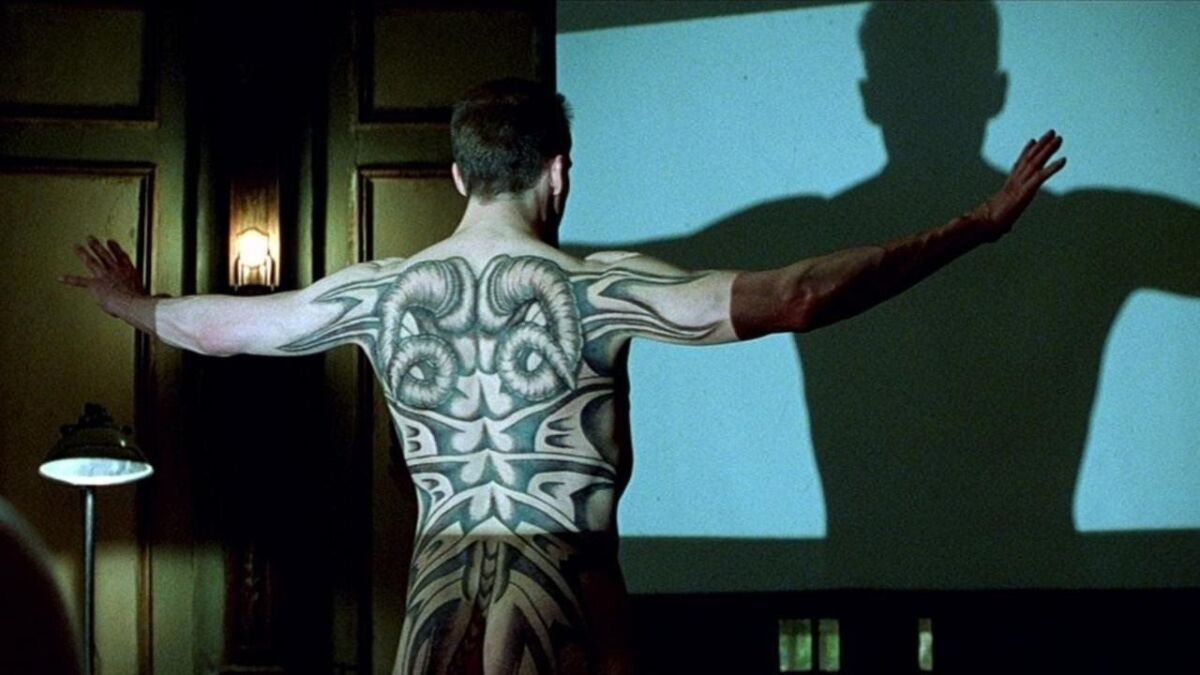
Director: Brett Ratner
With a strong cast and good source material, it doesn’t really matter that director Brett Ratner has the depth of a shallow roasting pan. Far removed from the deep psychological unease of Silence of the Lambs and without the bleakness and singular style of 1986’s Manhunter, which previously adapted this book, Red Dragon is still pretty entertaining.
There just isn’t much more to it than that.
As far as a lot of people are concerned, including myself, that’s fine. It just doesn’t hold up very well against the strengths of the next three films on this list.
As long as you can accept a visibly older Anthony Hopkins pretending he’s younger than Lecter was when Silence of the Lambs came out a decade prior, you should be fine. The film at least keeps us busy with a massive cast, including Hopkins, Harvey Keitel, Mary Louise-Parker, Phillip Seymour Hoffman, and a couple of familiar faces from previous films. Red Dragon has one of the better casts assembled for an early-2000s psychological horror movie.
Something similar can be said for Edward Norton giving as much weight as he can to FBI profiler Will Graham, who had the distinction of catching Lecter before spiraling into a self-imposed retirement. Will needs Lecter to catch a new serial killer, the Tooth Fairy, played here with a flawless command of disconcerting energy by Ralph Fiennes.
Complicating everything further is Tooth Fairy falling in love, in his own whimsical way, with a blind coworker (Emily Watson, who impressively stands out in such a busy movie). Like the 1986 film Manhunter, which also adapted this book, there are a lot of different plots running around in this movie. Unlike the 1986 version, Red Dragon doesn’t seem to have any sort of flow. The movie is almost resoundingly devoid of tension and atmosphere. Instead, a very basic pattern is maintained, and nothing ever really fully clicks into a cohesive, focused film.
It’s for this reason that Red Dragon falls short, when compared to other entries. Outside of a stellar cast and a solid story, both of which keep this film from being unwatchable, Red Dragon is forgettable.
3. Hannibal (2001)
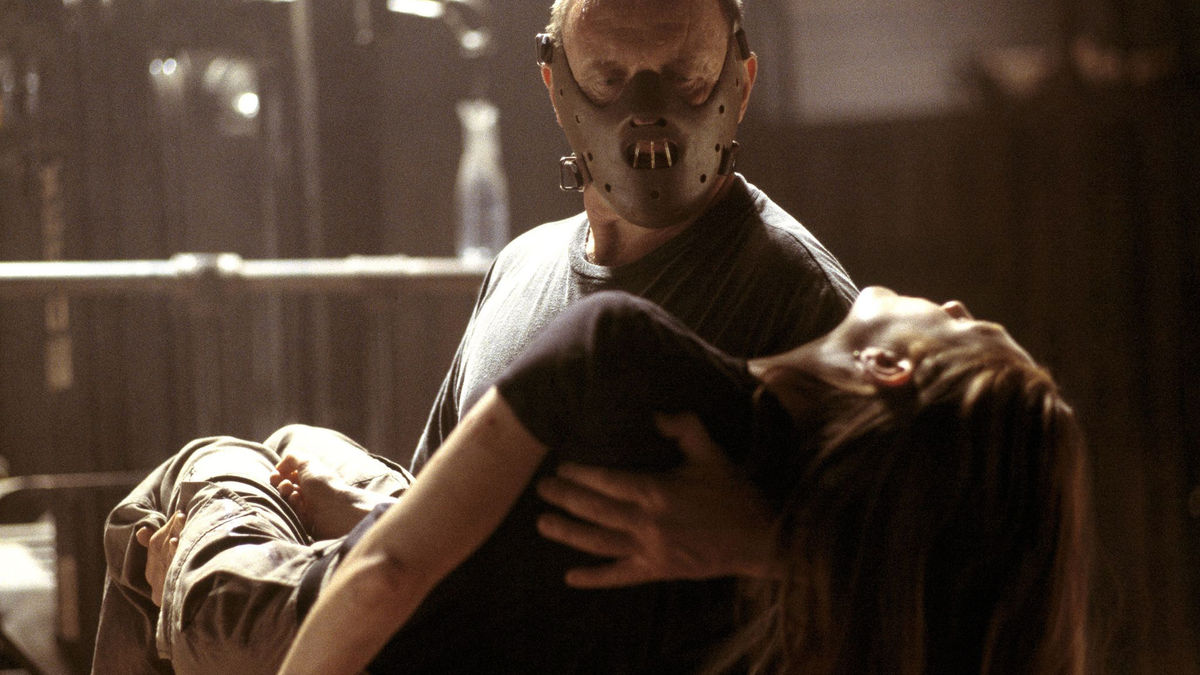
Director: Ridley Scott
Ridley Scott movies aim to be as big as possible in every facet of filmmaking. Scott wants to tell a good psychological story, with deep respect and time given to characters. However, he also makes movies where the tendency is to use the cinematic format to its fullest potential. Big performances. Intense closeups. Music, landscapes, and sometimes violence that covers the entire film in an experience.
That style isn’t for everyone. Scott, director of films like Alien and Gladiator, is hit-or-miss for me personally. Hannibal is a hit for me, as those larger-than-life qualities make for a film that is at the very least memorable. The movie covers a lot of ground, bringing us back to characters like Lecter and Clarice Starling, several years after the events of Silence of the Lambs. Numerous new characters are introduced, all of whom have one reason or another for being interested in Lecter, and sometimes, by association, Clarice.
Scott’s direction keeps these various characters and their motivations bounding ever-forward, without ever straying too far from the evolution of Clarice and Lecter’s relationship. Hopkins has to play a more stylized Lecter here, but he also has to add to a character who is older, and whose position and needs in life have changed since imprisonment. This is a big movie, but neither Lecter, nor Clarice, are swallowed up in just how much is going on.
That pandemonium extends to a memorable, suitably horrifying performance by Gary Oldman as billionaire child rapist Mason Verger, who desires a profound and terrible vengeance on Lecter for encouraging his disfigurement.
The only other factor that might hurt your enjoyment of the film, which functions fine as a direct sequel to Silence of the Lambs, is the recasting of Julianne Moore as Clarice. A controversial decision to some, it can’t be denied that Moore’s characterizations are very different from those of Jodie Foster. It is one of many ways Hannibal distinguishes itself from its predecessor.
The brain-eating scene, entirely on its own, would be another. If you have a sense of humor, and you like seeing what happens when a sexist nitwit from the FBI annoys Dr. Lecter, most of the rest of this adaptation will fall into place for you. You don’t even really have to see it as a sequel to Silence of the Lambs if you don’t feel like it.
2. Manhunter (1986)
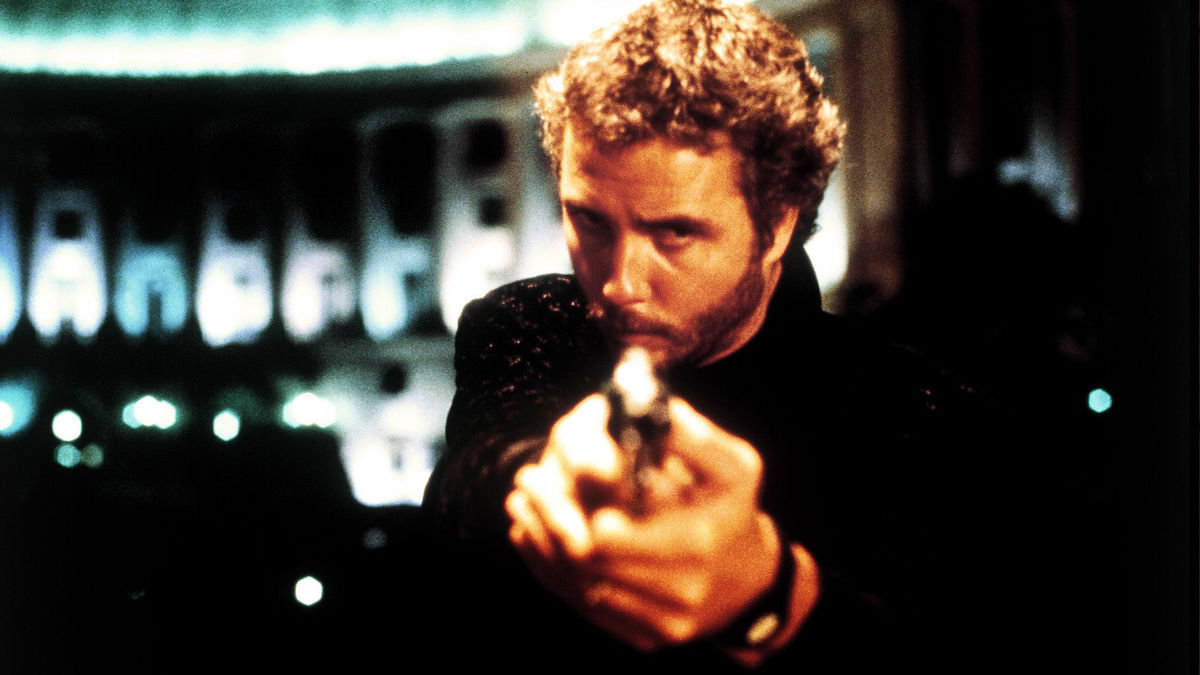
Director: Michael Mann
Some truly believe that Michael Mann’s haunting, 80s neo-noir gloom remains the best format for a Hannibal Lecter story. The fact that Lecter is decidedly not the main point of interest for this story (Red Dragon differs by embracing audiences’ expectations of Anthony Hopkins reprising an iconic role) is seemingly evidence of this.
True, Manhunter doesn’t shove Lecter down our throats, no pun intended. That wasn’t an overt choice, nor was anyone considering the possibility that in a few years, someone would adapt the next book in the series, and create one of the most famous movie villains in film history. Michael Mann had his own reasons for getting involved in the project, and those choices are reflected very clearly, beautifully, and distinctly on the screen.
At the same time, there’s no question that Lecter’s spirit looms over the story of an FBI profiler (William Petersen) working with his most famous capture to bring down a horrific breed of serial killer. Brian Cox plays the most understated version of Lecter in any media form. Yet the gleam of something sinister we pick up from Cox’s performance is very deeply disconcerting and even frightening, and it’s very apparent from the moment we are introduced. Cox plays Hannibal the Cannibal with a subdued flourish, which is perfect for Petersen’s more cynical depiction of the tormented Will Graham.
In the simplest terms, Manhunter is a police procedural with several very weird touches. One of which, particularly for the time, is Michael Mann’s fascination with deep character-mining for both the protagonist and antagonist. Manhunter pulls you in with its style, but it keeps you watching with its ability to build its players and story to something that rewards your investment in a way that is solely Mann’s.
1. The Silence of the Lambs (1991)
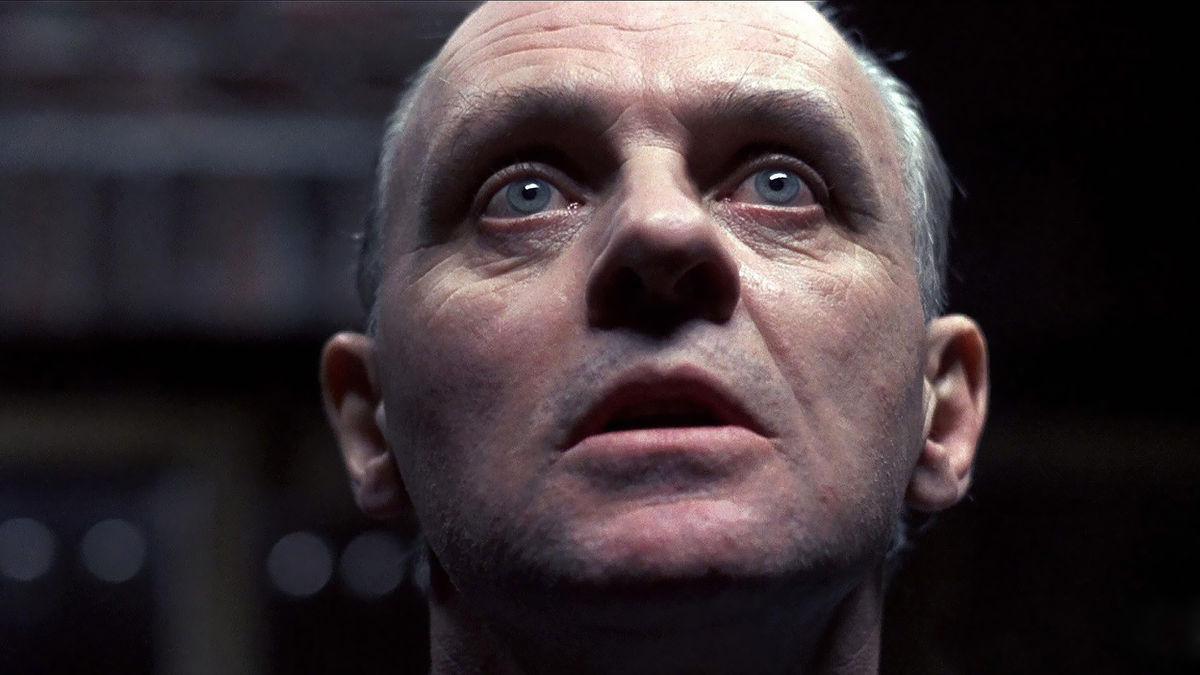
Director: Jonathan Demme
With a little over twenty-four minutes in total screentime, Anthony Hopkins created one of the most popular horror movie villains of all time. He established his name as a permanent mainstream fixture and won an Academy Award for Best Actor that most people actually still remember. Is Anthony Hopkins the best Hannibal Lecter ever?
Obviously, The Silence of the Lambs, which also won Oscars for Best Picture, Best Director for Jonathan Demme, and Best Actress for Jodie Foster, is the best argument about Hopkins as Lecter. Those twenty-four minutes establish Lecter as my own favorite.
Mads Mikkelsen has overshadowed Hopkins as Hannibal Lecter for many, but not for me. In the same way I wouldn’t want to see Hopkins play Lecter over long-form storytelling, Mads’ take on the character wouldn’t work as harmoniously with Jonathan Demme’s directing style as Hopkins does.
Nothing is a better overall depiction of these characters and this universe than The Silence of the Lambs. That’s because this film is the best combination of writing, direction, performances, editing, music, pacing, and other qualities for these characters and this universe. As good as Hopkins is as the brilliant serial killer Dr. Lecter, he isn’t the only reason to recommend this movie.
The Silence of the Lambs starts strong, uses Demme’s intimate filmmaking style to brilliant effect, and never really slows down, or wastes our time. Everything builds on the tension of the movie’s beginning, centered on an aspiring FBI agent and her assignment to use a serial killer’s profiling genius to help the bureau catch another serial killer (Ted Levine, who creates an unfortunate, terrifying human being in Jame “Buffalo Bill” Gumb).
If the movie isn’t building tension or giving us minor payoffs for that tension along the way, it’s doing something interesting with its characters. These things are presented with an attention to the unsettling, and a clear desire to tell a story that goes well beyond the expectations of drama, the police procedural, or psychological horror. The Silence of the Lambs is dazzling on all these fronts, while also using its features and artists to create something entirely new from our expectations.
To an impressive degree, The Silence of the Lambs remains a well-crafted, relentless movie. It is a perfect foundation of essential and decidedly cinematic qualities.
Only the film’s handling of the Buffalo Bill character, controversial at the time of the film’s release, has shifted over the years. A growing number of critics and others recognize the film’s brilliance, but are committed to deconstructing or even highlighting the presence of (however unintentional) transphobia. However you might feel about the film itself, it’s impossible to discuss the legacy of The Silence of the Lambs and its vast influence in the wake of its release without also discussing aspects which have aggressively contributed to how one group of people views another.
Nonetheless, regardless of how deep you dive into this film, the overall experience remains enthralling on both the technical and artistic sides of cinema. As far as the Hannibal Lecter movies are concerned, nothing else has brought these characters to life more effectively than this single movie.
READ NEXT: Ranking Every Die Hard Movie From Worst to Best
Some of the coverage you find on Cultured Vultures contains affiliate links, which provide us with small commissions based on purchases made from visiting our site.
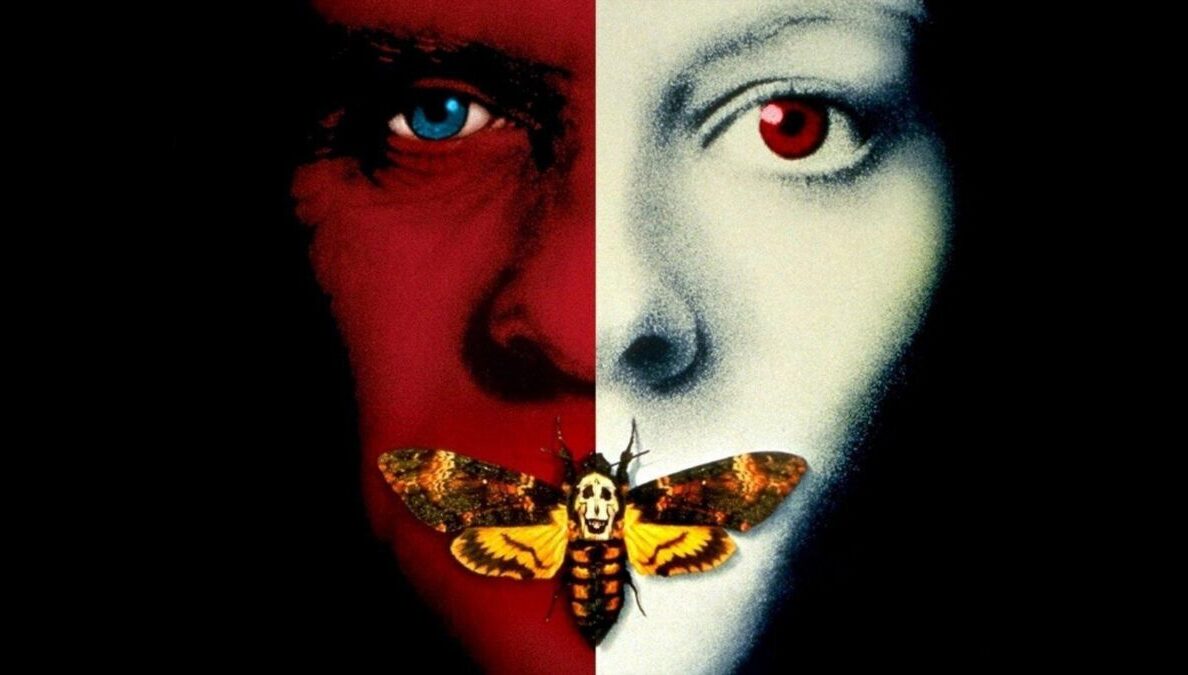
![Hannibal Rising Hannibal Rising-Wie Alles Begann,Blu-Ray [DVD]](https://m.media-amazon.com/images/I/41LNfT0MYvL._SL75_.jpg)
![Red Dragon [Blu-ray]](https://m.media-amazon.com/images/I/412XxgGTkCL._SL75_.jpg)
![Hannibal (2001) [4KUHD] [Blu-ray]](https://m.media-amazon.com/images/I/41a8jRI34mL._SL75_.jpg)
![Manhunter [Blu-ray]](https://m.media-amazon.com/images/I/51Uj28c92qL._SL75_.jpg)
![The Silence of the Lambs (The Criterion Collection) [Blu-ray]](https://m.media-amazon.com/images/I/51g-xPTJeZL._SL75_.jpg)
